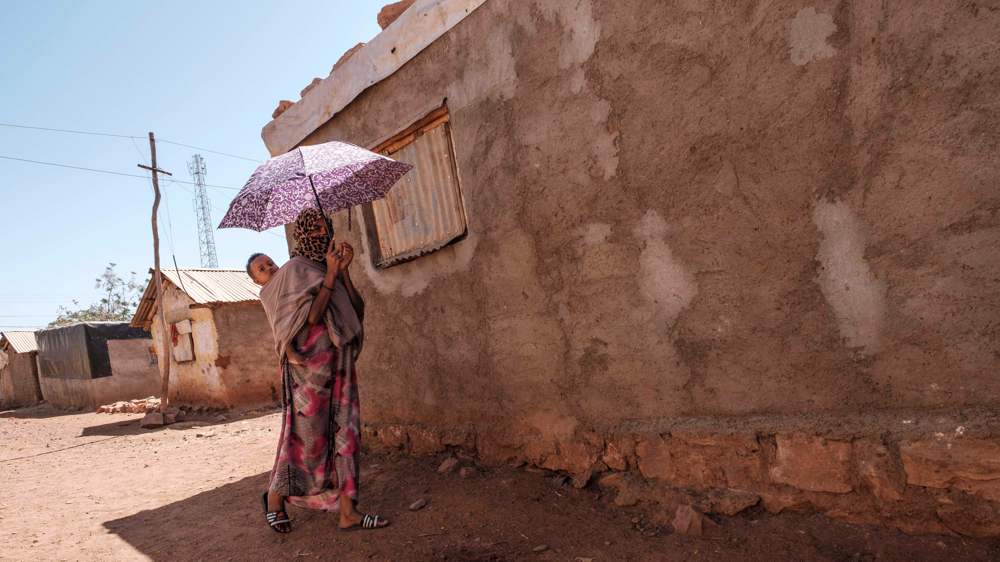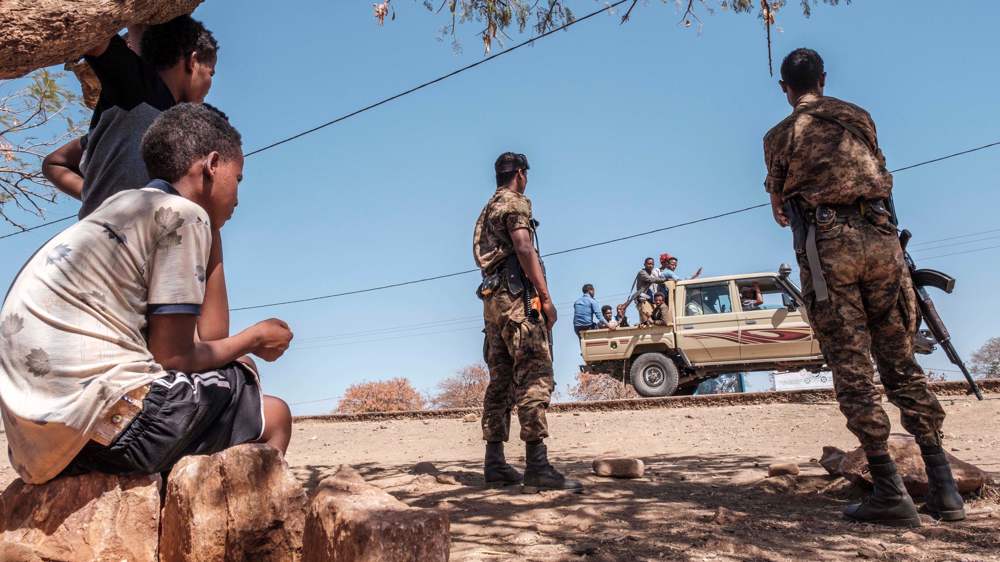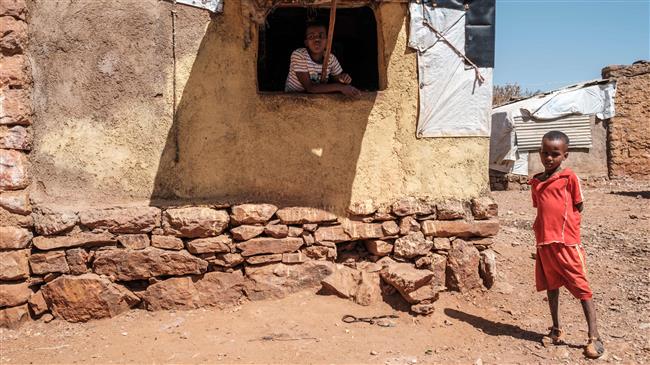‘Tens of thousands’ could starve to death in Ethiopia’s Tigray: Red Cross
The Ethiopian Red Cross Society says 80 percent of Ethiopia’s northern, conflict-torn Tigray region has been completely cut off from humanitarian aid, warning that tens of thousands could starve to death as a result of the alarming situation there.
Abera Tola, the president of the Ethiopian Red Cross Society, made the remarks in a press conference on Wednesday, as fighting between Ethiopian troops and armed rebels continued in the restive region.
“Eighty percent of the Tigray is unreachable at this particular time,” Abera said, adding that some cases of starvation had already been reported and the figures could climb fast.
“The number today could be one, two, or three, but you know, after a month it means thousands. After two months it will be tens of thousands,” he said.
Abera said access had remained largely restricted to main roads north and south of the regional capital, Mekelle, excluding most rural areas.
Once humanitarian workers are able to reach Tigray’s rural areas, “there, we will see a more devastating crisis,” he said, adding that, “We have to get prepared for the worst.”
The official said the displaced civilians who had managed to reach camps in Tigray were “emaciated.”
“You see their skin is really on their bones. You don’t see any food in their body,” he said. “Sometimes it is also really difficult to help them without some kind of high nutritional value foods.”
The Ethiopian Red Cross now estimates that around 3.8 million of Tigray’s roughly six million people need humanitarian assistance, up from an earlier estimate of 2.4 million, Abera said.
Meanwhile, Francesco Rocca, the president of the International Federation of Red Cross and Red Crescent Societies, who visited Tigray this week, described the plight of the people displaced by the conflict as “unbearable.”
“The situation there is one of the most difficult I’ve ever seen. The people there are missing almost everything,” Rocca said.
“People in Tigray need everything: food and food items, water and sanitation, medical supplies, and mobile clinics. And humanitarian organizations need access to Tigray to reach the most vulnerable,” he said.
He said accessible hospitals in Tigray were “barely working” and had no medicines, no food for patients, and no psycho-social support. He criticized the “unacceptable” looting that has reportedly ravaged most of the health facilities in the region.
Amnesty International earlier urged Ethiopia’s government to honor a promise to grant humanitarian access to Tigray.
Ethiopian federal troops entered Tigray as part of a retaliatory response to alleged attacks on government forces on November 4 last year and overthrew the dissident regional ruling party of the Tigray People’s Liberation Front (TPLF), which had set itself in opposition to Prime Minister Abiy Ahmed since he came to power in April 2018.
Though the government announced victory on November 28, the region’s ousted leader has vowed to continue fighting.
Since fighting began, thousands of people have lost their lives and hundreds of thousands of others have been forced from their homes. The region is home to more than five million people.
According to the United Nations (UN), an estimated 100,000 people are displaced in Tigray and some 60,000 people have taken refuge in Sudan.
‘Displacement plot’: Hamas condemns Israeli demolitions in al-Quds
VIDEO | Australia’s bold stand for Palestine: A year of protest, cultural solidarity
Media more influential than military for outcome of conflicts: Leader
Israel has put Gaza healthcare on ‘brink of total collapse’: UN
Bahrain says continues coordination with Iran aimed at rapprochement
Israel kills over 800 infants in Gaza genocide: Report
Five Israeli troopers killed in Hamas retaliatory op in northern Gaza
VIDEO | Press TV's news headlines















 This makes it easy to access the Press TV website
This makes it easy to access the Press TV website